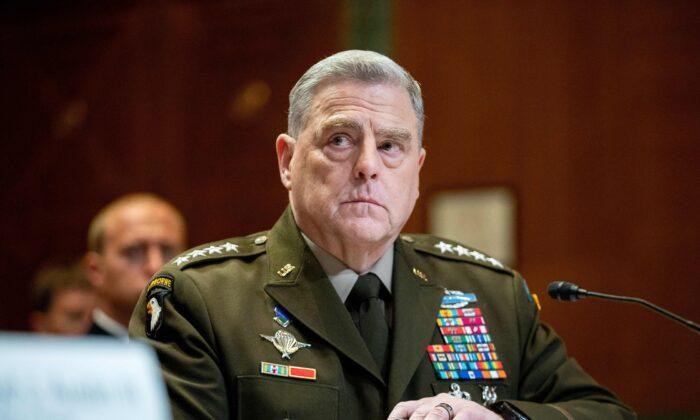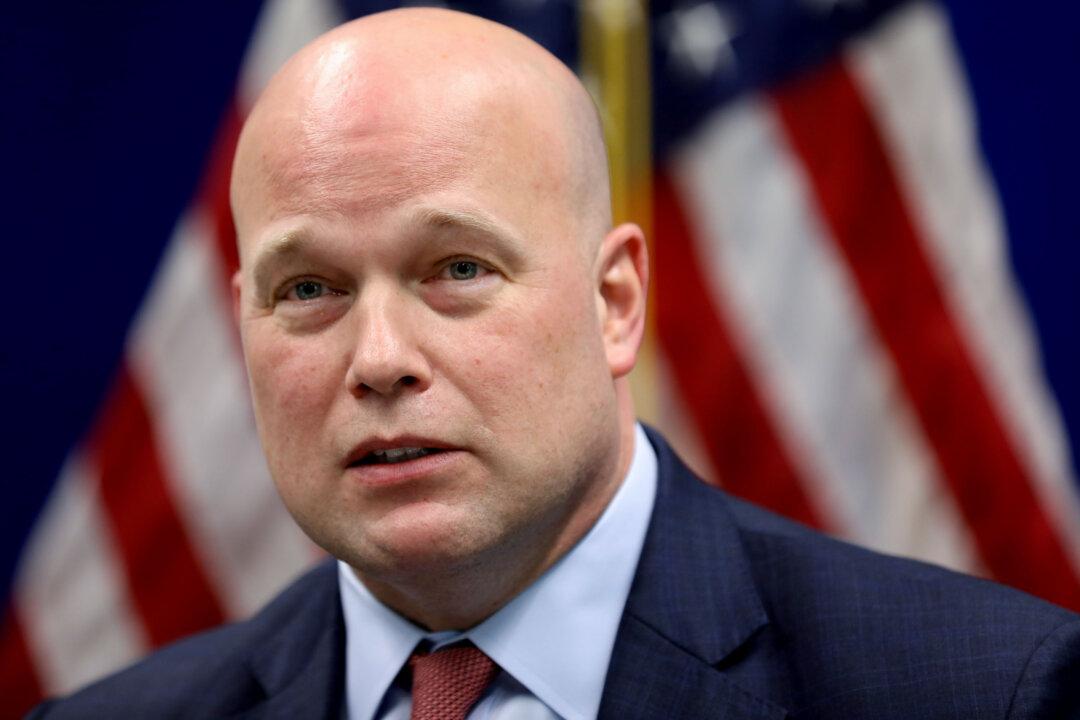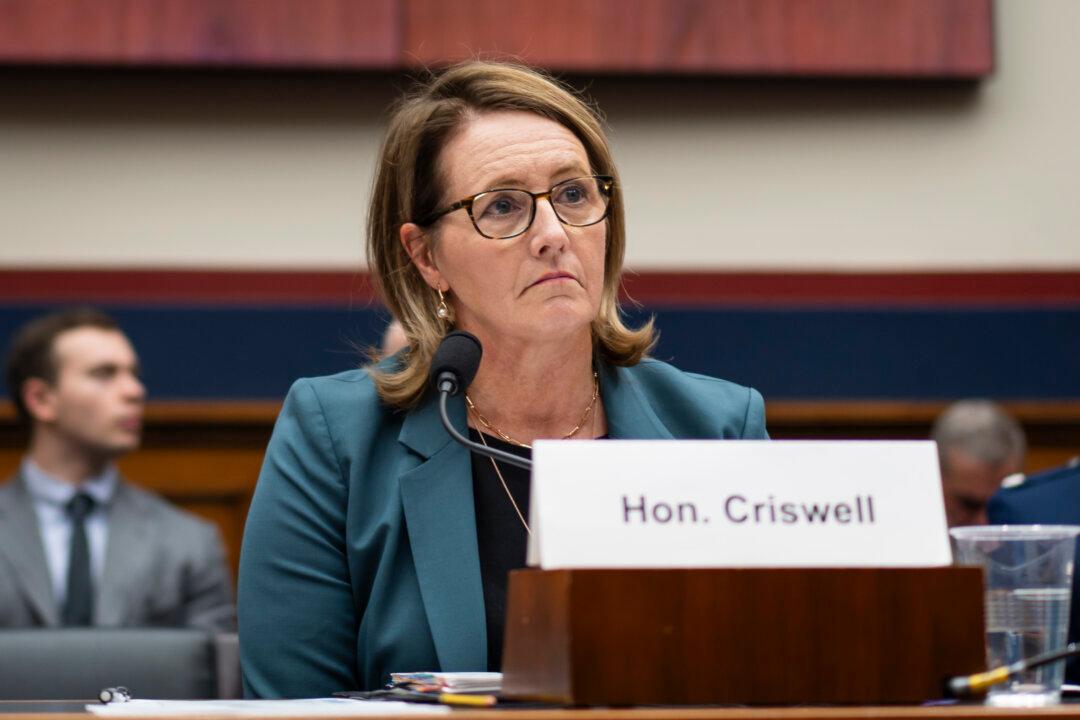China is on a trajectory to achieve military superiority over the United States by midcentury, Joint Chiefs of Staff Chairman Gen. Mark Milley warned members of Congress on March 29.
Testifying at a House Armed Services Committee hearing on the Department of Defense’s 2024 budget requests, Milley noted that China has a national goal to be a “global coequal” with the United States and “militarily superior” by 2049.
“They’re on that path to do that, and that’s really disturbing,” he said. “That’s really bothersome. And we’re going to have to not only keep pace, but we have to outpace that, and that will assure the peace.”
Of particular concern is China’s nuclear development program, Milley said, holding that there is little the United States could do to “stop, slow down, disrupt, interdict, or destroy” it.
“They have a significant nuclear capability today and they have intercontinental ballistic missiles that can range the United States,” he said. “That is obviously bothersome.”
The general also noted that the situation is further complicated by the strengthening relationship between China and Russia, which he described as “troublesome.”
“We are facing two nuclear-armed great powers,” he emphasized. “So, the principles of the Cold War of deterrence still obtain, but now it’s more complicated because it’s two versus one.”
A New Cold War?
Milley’s remarks came on the heels of the release of a new Heritage Foundation report (pdf), which holds that the United States has entered into a new Cold War with China and outlines a defensive plan to counter the threat.To better defend against the Chinese communist threat, the report includes more than 100 policy proposals spanning foreign policy, defense strategy, border security, the economy, and more.
“To succeed in the new Cold War, this plan calls for sustained U.S. economic growth, greater political will, stronger external partnerships, secure borders, synchronized economic and security policies, resilient supply chains, enhanced military deterrence, and American energy independence,” said the report’s editors James Carafano, Michael Pillsbury, Jeff Smith, and Andrew Harding.
“It articulates the steps necessary to: protect the homeland; safeguard U.S. prosperity; diminish China’s capacity to harm the U.S. and hold the CCP accountable; reorient America’s defense posture; and exercise global leadership.”
The decision followed Russia’s recent announcement that it was suspending its participation in the New START Treaty—the last arms control pact between the two nations—while the United States continues to support Ukraine.
“Since they have refused to be compliant with that particular modality of New START, we have decided to, likewise, not share that data,” White House National Security Council spokesman John Kirby advised on a phone call with reporters.





